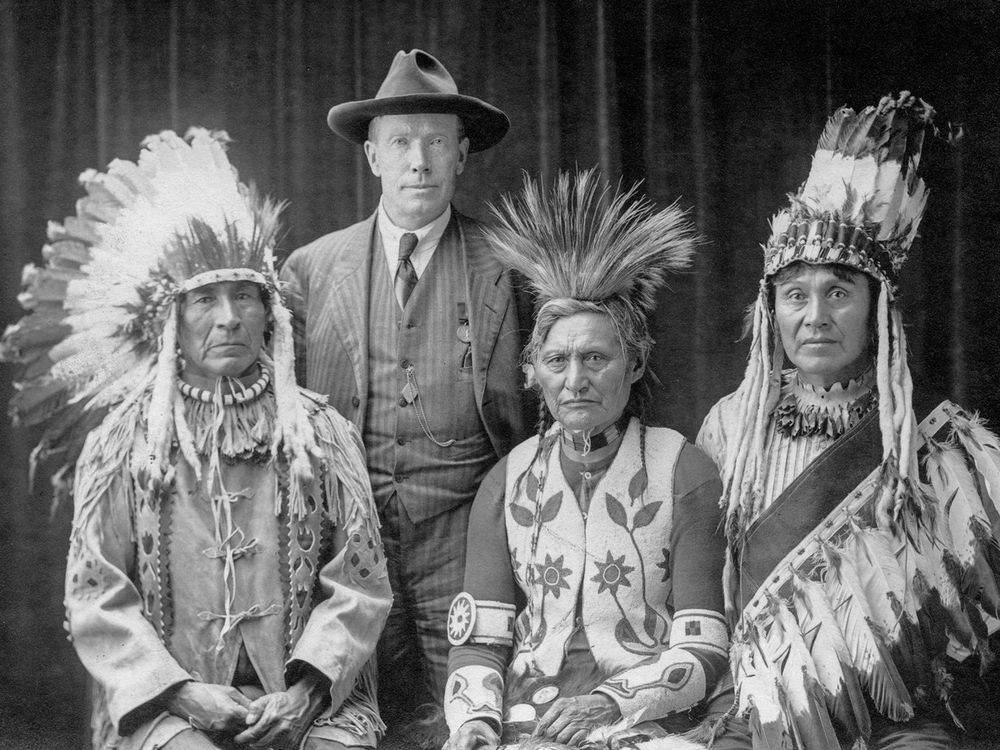Wendy Wickwire: B.C.'s missing anthropologist could finally get the recognition he's due

Credit to Author: Hardip Johal| Date: Tue, 19 Nov 2019 23:23:34 +0000
Six thousand anthropologists will descend on Vancouver this week for a joint annual meeting of the Canadian Anthropology Society and the American Anthropological Association. As the century-old AAA rarely meets outside the U.S., this is an opportunity to recognize its huge debt to Canada — and especially to British Columbia.
That debt was incurred by American anthropology’s “founding father” Franz Boas, who for most of his career drew on material — including stories, songs, languages, art, clan histories, archeology and artifacts — culled from hundreds of Indigenous men and women across British Columbia. Under the auspices of New York’s American Museum of Natural History and later, Columbia University’s Department of Anthropology, Boas’s prolific writings on the Indigenous people of the northwest coast turned him into one of North America’s preeminent scholars.
Boas’s name will reverberate through this conference. The program lists several talks and films on Boas, and a book fair will feature dozens of books on Boasian anthropology. For some attendees, the west coast setting will feel like a trip into the Boasian heartland.
Boas undertook a flurry of field trips to B.C. between 1886 and 1900. For the next 22 years, however, except for one two-week visit in August 1914, he stayed away. From 1894 to 1922, much of his field data for mainland B.C. came from the little-known James Teit of Spences Bridge. Teit’s work generated massive files of field notes, 11 major monographs, and some of the largest and best-documented museum collections. The latter are housed in Boston (the Peabody Harvard Museum), New York (the American Museum of Natural History), Chicago (the Field Museum), Ottawa (the Canadian Museum of History), and Victoria (the Royal B.C. Museum).
There has never been an ethnographer the likes of James Teit. His legacy consists of four decades of detailed interviews with hundreds of his Indigenous friends and neighbours in their languages on everything from hunting practices and songs to ethnobotany and territorial landmarks. His Nlaka’pamux spouse, Antko, opened this world to him. Together, the couple maintained a large farm adjacent to her Nicoelton Reserve in the Twaal Valley above the village of Spences Bridge.
Without Teit, who knows what Boas might have achieved? In the anthropological record, however, Boas became the text while Teit became a footnote.
Unlike Boas, who approached Indigenous peoples as the last survivors of dying cultures in need of preservation in metropolitan museums, Teit worked with them as members of living cultures actively struggling to assert jurisdiction over their lives and lands.
But this is only half the story. From 1908 until his death in 1922, Teit added full-time political activism to an already full life. He facilitated Indigenous campaigns against land-seizures, conscription, enforced enfranchisement and the potlatch ban. His Spences Bridge home became a meeting ground for chiefs to hammer out written declarations, petitions and letters, and to organize trips to Victoria and Ottawa. One meeting in August 1912 drew 450 participants.
Teit’s socialist ideals made him a perfect ally against colonial injustices.
These were desperate times as few chiefs could even understand, let alone speak, English. Without language, they were helpless. Teit’s fluency in three Indigenous languages was unique for a settler Canadian. Peter Kelly, the Haida leader who served with Teit on the executive committee of the Allied Indian Tribes of B.C., described him as a beloved “brother.”
In Teit’s final months, while he was undergoing radiation therapy at St. Paul’s hospital, Indigenous groups held a vigil in Vancouver.
Teit died in 1922 at the peak of the chiefs’ political campaign. Except among locals and descendants of the old chiefs, his legacy went unrecognized.
Boas rarely acknowledged Teit’s work and, in the end, he actively invisibilized it. One lone Vancouver newspaper man, Snowdon Dunn Scott of the Vancouver Daily Province, published an obituary that extolled Teit and his contributions. He lashed out at Boas, noting that the latter’s fame and success “owe to Mr. Teit more than to all his books.”
In the few places where anthropology’s histories mention Teit, it is as Boas’s backwoods “informant/assistant.”
It is past time for anthropologists to set the record straight and acknowledge Teit as a grounded scholar decades ahead of his time. For Canadians, it is time to expand their collective memory and rescue a human legacy long missing in history.
Wendy Wickwire is the author of At the Bridge: James Teit and an Anthropology of Belonging (UBC Press, 2019).
Letters to the editor should be sent to sunletters@vancouversun.com.
CLICK HERE to report a typo.
Is there more to this story? We’d like to hear from you about this or any other stories you think we should know about. Email vantips@postmedia.com.